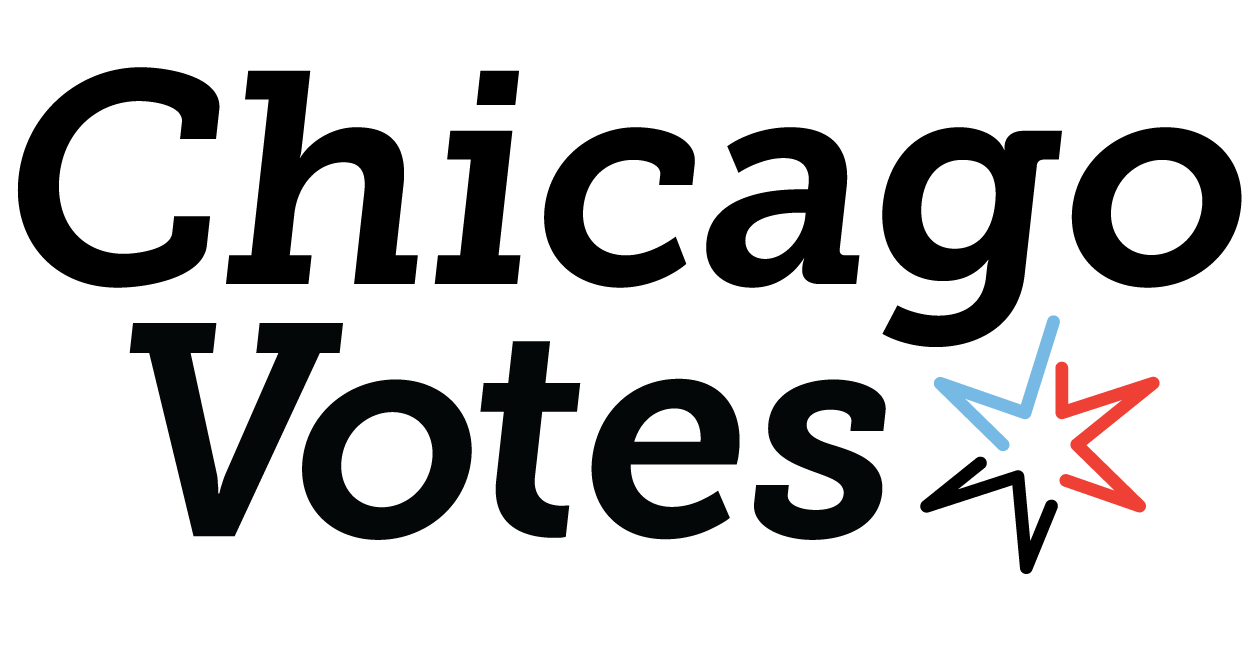By Caleb Dunson, Chicago Votes Inaugural Brian Sleet Fellow
I spent an hour and a half lying on a dusty, stained futon, a computer at my side for research, bubbling in answers like I was taking a multiple-choice exam. After I finished, I carefully sealed my freshly filled out form in an envelope and stepped into the New Haven drizzle, and dropped the envelope in the mailbox just outside of my dorm. My arduous mission was finally complete: I voted in my first presidential election.
This election season, millions of young people voted in a similar manner, helping to propel Joe Biden to the White House. Tufts University’s Center for Information and Research on Civic Learning and Engagement (CIRCLE) estimated that voter turnout among people aged 18-29 was between 52%-55% –– a significant increase from the 2016 election. In battleground states like Arizona, Georgia, Michigan, and Pennsylvania –– where the margins of victory were razor-thin –– Biden won the youth vote by over 100,000.
In a year where democracy was vulnerable, young people showed up in a near-unprecedented fashion to uphold our most sacred institution. But to sharpen our democracy and guard against future threats, our country must consistently include young people in civic processes. That requires all of us to commit to dismantling the barriers that reduce youth civic engagement: inadequate civics education and elaborate voting laws.
In the country that brought democracy into the modern era, one would expect our civics education programs to be among the best in the world. But with only 39% of Americans able to name all three branches of government, civics education in the U.S. is in dire need of reform. According to the Center for American Progress, “only nine states and the District of Columbia require one year of U.S government or civics” and many state civics curricula fail to adequately build skills for active civic engagement. Education inequity only exacerbates the issue by creating additional obstacles to civic engagement for poor students, rural students, and students of color.
We cannot expect our democracy to work if we do not prepare young Americans to engage with democratic institutions. Kathleen Hall Jamieson, director of the Annenberg Public Policy Center, says it best: “the resilience of our system of government is best protected by an informed citizenry.”
One such way to ensure an “informed citizenry” is to create a national curriculum for high school civics education, much like the common core, that emphasizes experiential learning. By teaching students about civics through an action-based curriculum, our schools will help instill in them the positive habits necessary for consistent civic engagement–conscious media consumption, for example–and equip them with the tools they need for a life of active citizenship. But simply imposing a blanket curriculum will grant those with the most wealth and privilege access to the most robust civics education. The federal government and state governments must also work together to rectify the inequitable distribution of funding in schools across the country and ensure that access to a good civics education is not contingent upon race, class, or region.
Excessively complex voter registration and voting laws have also proven harmful in the effort to increase youth civic engagement. According to a FiveThirtyEight report, young people (aged 18-34) were more likely to face barriers to voting –– like missing voter registration deadlines, not receiving an absentee ballot in time to vote, and not being able to access their polling place –– than any other age group. Prior to the November election, Republican legislators increased their efforts to suppress the youth vote under the guise of election security by closing polling sites and implementing convoluted voting laws, which disproportionately affected college students. Though these efforts did not yield the presidential election result right-wing lawmakers had hoped for, stories still abound of young people becoming discouraged by the election laws of their states –– and that is dangerous. A young person scorned by the election system is a voter lost to the electorate and a voice potentially lost to our democracy.
Reforming voting laws requires powerful advocacy work. Because states have the power to set election laws, to address this issue civics organizations across the country must collaborate in their fight to make voting more accessible for young people. Lobbying work and issue awareness campaigns both lend themselves to joint efforts, and sharing resources in those efforts can prevent wasted time and energy. Volunteers can also utilize the tools of social media and extend the influence of each organization’s advocacy work beyond their traditional networks.
If we are to commit to democracy as a nation, we have to be diligent about ensuring that everyone’s voice is heard. As a new year brings an uncertain political landscape, we must uphold our commitment to breaking down the barriers that keep young people from engaging our democracy.
